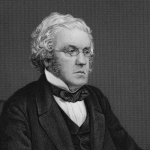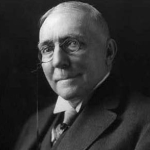I
Fanny was younger once than she is now,
And prettier of course: I do not mean
To say that there are wrinkles on her brow;
Yet, to be candid, she is past eighteen—
Perhaps past twenty—but the girl is shy
About her age, and heaven forbid that I
II
Should get myself in trouble by revealing
A secret of this sort; I have too long
Loved pretty women with a poet’s feeling,
Have knelt me down and worshipp’d them: alas!
They never thank’d me for’t—but let that pass.
V
Her father kept, some fifteen years ago,
A retail dry-good shop in Chatham-street,
And nursed his little earnings, sure though slow,
Till, having muster’d wherewithal to meet
The gaze of the great world, he breathed the air
Of Pearl-street—and "set up" in Hanover-square.
VI
Money is power, ’tis said—I never tried;
I’m but a poet—and bank-notes to me
Are curiosities, as closely eyed,
Whene’er I get them, as a stone would be,
Toss’d from the moon on Doctor Mitchill’s table,
Or classic brickbat from the tower of Babel.
VII
But he I sing of well has known and felt
That money hath a power and a dominion;
For when in Chatham-street the good man dwelt,
No one would give a sous for his opinion.
And though his neighbours were extremely civil,
Yet, on the whole, they thought him—a poor devil,
VIII
A decent kind of person; one whose head
Was not of brains particularly full;
It was not known that he had ever said
Any thing worth repeating—’twas a dull,
Good, honest man—what Paulding’s muse would call
A “cabbage head”—but he excelled them all
IX
In that most noble of the sciences,
The art of making money; and he found
The zeal for quizzing him grew less and less,
As he grew richer; till upon the ground
Of Pearl-street, treading proudly in the might
And majesty of wealth, a sudden light
X
Flash’d like the midnight lightning on the eyes
Of all who knew him; brilliant traits of mind,
And genius, clear and countless as the dies
Upon the peacock’s plumage; taste refined,
Wisdom and wit, were his—perhaps much more.
’Twas strange they had not found it out before.
XXV
Dear to the exile is his native land,
In memory’s twilight beauty seen afar:
Dear to the broker is a note of hand,
Collaterally secured—the polar star
Is dear at midnight to the sailor’s eyes,
And dear are Bristed’s volumes at “half price;”
XXVI
But dearer far to me each fairy minute
Spent in that fond forgetfulness of grief;
There is an airy web of magic in it,
As in Othello’s pocket-handkerchief,
Veiling the wrinkles on the brow of sorrow,
The gathering gloom to-day, the thunder cloud to-morrow.
XLI
Since that wise pedant, Johnson, was in fashion,
Manners have changed as well as moons; and he
Would fret himself once more into a passion,
Should he return (which heaven forbid!), and see,
How strangely from his standard dictionary,
The meaning of some words is made to vary.
XLII
For instance, an undress at present means
The wearing a pelisse, a shawl, or so;
Or any thing you please, in short, that screens
The face, and hides the form from top to toe;
Of power to brave a quizzing-glass, or storm—
’Tis worn in summer, when the weather’s warm.
XLIII
But a full dress is for a winter’s night.
The most genteel is made of "woven air;"
That kind of classic cobweb, soft and light,
Which Lady Morgan’s Ida used to wear.
And ladies, this aërial manner dress'd in,
Look Eve-like, angel-like, and interesting.





Comment form: